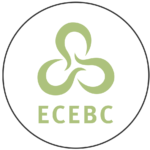
ECEBC Online Conference
Discover our World, Discover the Possibilities…
Standing Strong Together!
May 30, 2020 10:00 AM – 5:00 PM
AGENDA
10:00 – 10:30
Welcoming Address
10:30 – 12:00
Keynote – Teacher Tom
Educating Citizens through Play
12:00 – 12:30
Lunch
12:30 – 2:30
Workshops
2:30 – 3:00
Break
3:00 – 5:00
Workshops
To take part in the online conference discussions, register for the BC Early Years HUB here:
WORKSHOP DESCRIPTIONS
Keynote: Educating Citizens Through Play
Teacher Tom speaks about how children’s play brings the habits and principles of democracy into ‘early years’ classrooms. He will begin by discussing the purpose of education in democratic societies and how and why we have managed to veer so far from the original intent, which is to educate citizens capable of contributing to the grand experiment of self-governance. In this full-throated support for play-based education, he details through his illustrative classroom stories and examples exactly how his curriculum works. Participants will learn the benefits of introducing these playful principles to their own students, the hallmarks of what makes a good citizen both in a classroom as well as a democracy, the traits and habits required for self-governance, and practical tips on how to implement these ideas in their own classrooms. It is an inspiring, often touching, often hilarious, and always eye-opening and empowering presentation.
Presenter: Teacher Tom
Workshops First Session: 12:30 - 2:30
Living Enquiries
In the BC Early Learning Framework the term “living” is used to suggest that pedagogical processes are ongoing, lived events that do not have a predictable outcome. Pedagogical processes emerge from pedagogical intentions that are shaped by the educators and learners and are influenced by context, place, community, and values. A living inquiry is shaped collectively by children and educators and takes shape through the practice of pedagogical narrations. In this session, faculty pedagogists will share their work with students and educators in creating spaces for longterm living inquiries with children. They will share what it means to work with young children, educators, and practicum students to explore a material, process, or concept over a period of time.
Presenters: Bo Sun Kim and Sylvia Kind
How does the sector move forward and why ELCC is so critical to Canada’s reconstruction?
Across Canada, provincial/territorial government’s COVID-19 actions and directions specific to the ELCC sector have been diverse. From public messaging to different approaches; to group sizes to programs/providers opening or closing; to the roles of the ELCC workforce in providing Essential Service Worker (ESW) care; to how and when should programs/providers reopen. It has been a patchwork of responses and directives.
Presenter: Don Geisbrecht
Creating a Culture of Child Protection
Calling all early childhood educators, parents of primary aged children, social workers, teachers, foster parents, grand-parents raising grand-children and ANYONE who works with or cares for children.
In this workshop you will learn about…
1. Why we need to teach sexual health education early
2. What schools should be offering our primary aged children in terms of sexual abuse prevention
3. Common myths of sexual abuse
4. Types of sexual abuse
5. Statistics of sexual abuse
6. Who commits sexual abuse?
7. Incidences of reporting
8. The difference between a pedophile and molester
9. The profile of a predator
10. Stages of grooming a child
11. What transfer of responsibility looks like
12. Patterns of disclosure
13. Why kids don’t disclose
14. Normal sexual behaviour for preschool and primary aged kids.
15. Signs and symptoms of child sexual abuse
Presenter: Kerri Isham
Workshops Second Session: 3:00 - 5:00
Engaging with the Revised BC Early Learning Framework:
An Opportunity to Examine Our Ideas about Practice, Education, and Learning
Where do our ideas about learning come from? What informs the choices we make in our practice? In this session we will use the revised Early Learning Framework as a basis for critical reflection. Guided by the principles, living inquiries, and pathways embedded in the framework we can challenge ourselves and each other to think deeply about the changing realities of early care and learning in BC. Together we will examine the multiple perspectives that can and should contribute to our understanding of childhood itself and what it means to be an early childhood educator.
Presenter: Charlene Gray
Keeping the Spark by Nurturing Your Social Emotional Learning
Educators are constantly faced with many changes and challenges as well as increasing expectations in the field. The new BC Early Learning Framework (ELF) offers the opportunity to explore new ideas, perspectives, and pathways. While at first this may cause stress for some, the new ELF allows space for our continuous growth. This session will focus on how ELF can ignite the passion and spark for our work, give us a compass to guide us through our unique journeys, and nurture our own social emotional learning, so we can, in turn, support our peers in our mutual learning journey. During this workshop we will discuss how to best support each other as we learn to implement changes and new ways together.
Presenter: Nora Meija
Talking Temperament – Deepening Our Understanding of Ourselves and Others
Have you ever wondered why you or others in your life react or behave in a certain way?
This workshop will introduce the concept of “temperament” and will explore nine temperament traits and how this understanding will affect every interaction and relationship, we have in life. You will learn to recognize and interpret temperament traits in yourself and others, and understand how this may impact your relationships with family, colleagues, clients, friends, and the children you work with. You will see first hand the children’s experiential learning about temperament around the green Roots of Empathy blanket in the classroom with an Instructor, volunteer parent and a “tiny teacher”, the baby.
At the end of this session, you will become more aware of your own behaviour and have a glimpse into the behaviour of those around you through the temperament lens. We guarantee that you will be able to apply this new knowledge immediately in your personal and professional life.
Presenter: Darcy Morgan





